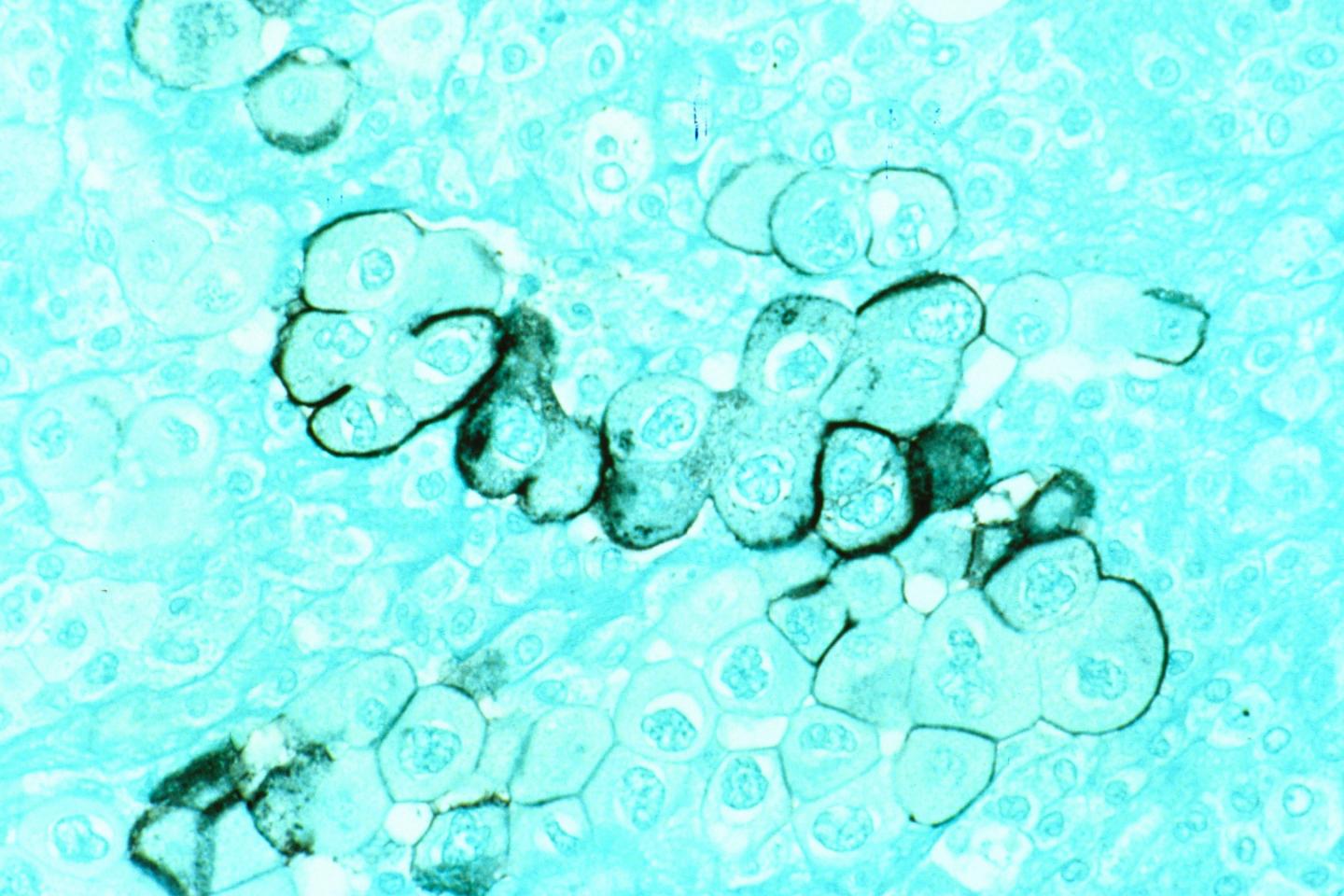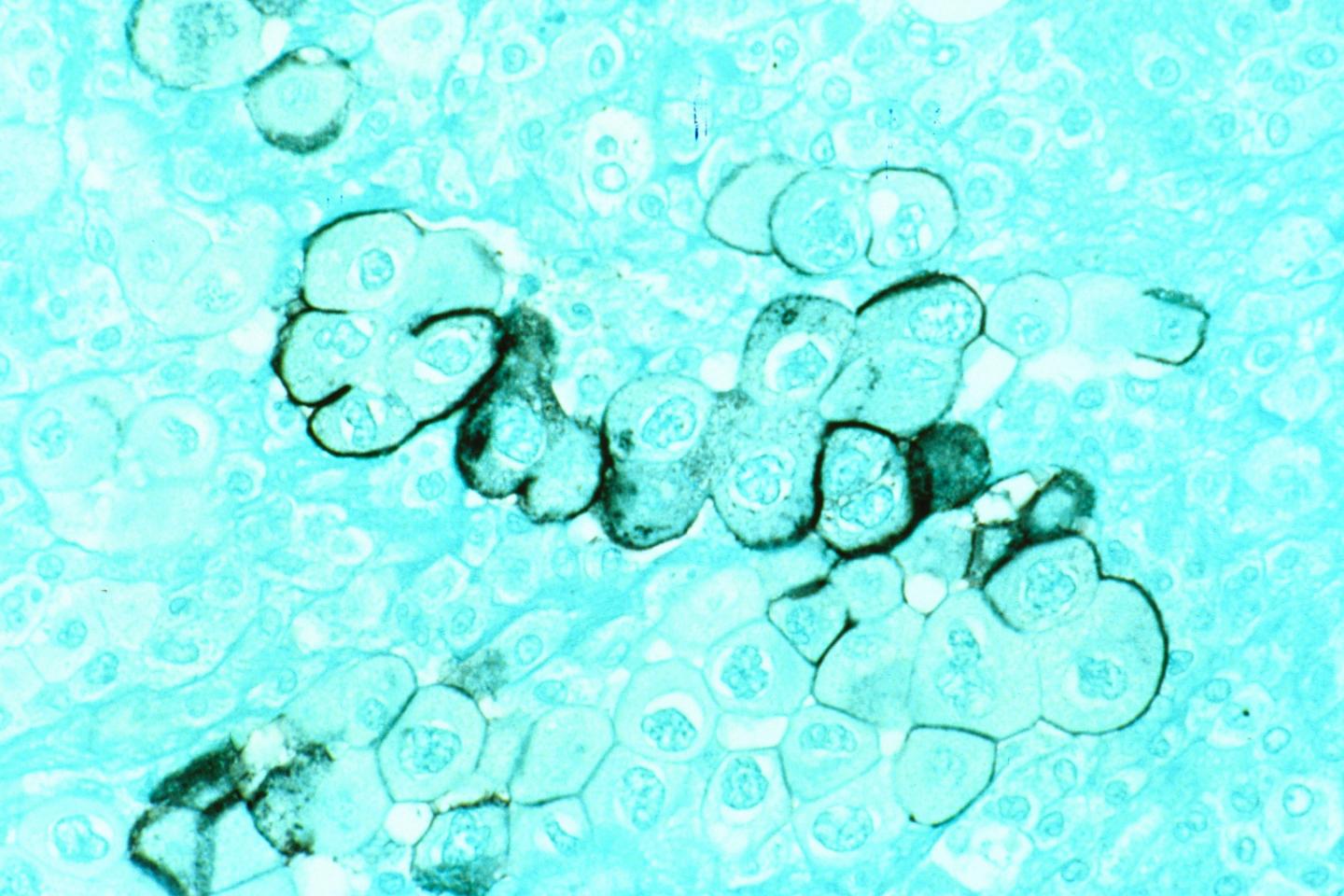
Credit: University of Cincinnati
Researchers at the University of Cincinnati (UC) College of Medicine have shown that a new targeted treatment could benefit patients with certain pancreatic tumors by preventing spread of the cancer and protecting their heart from damage–a direct result of the tumor. Higher levels of serotonin among other tumor secretions can cause injury to the valves of the heart over time, leading to cardiac impairment–a condition referred to as cardiac carcinoid disease–in these patients.
These findings, reported in the November 2017 issue of Molecular Cancer Therapeutics, could lead to another targeted treatment for patients and prevent the onset of additional complications from their cancer.
"Pancreatic neuroendocrine tumors–pancreatic NETs, pNETs or islet cell tumors–are tumors that form from the abnormal growth of neuroendocrine cells in the pancreas," says lead author Hala Elnakat Thomas, PhD, research assistant professor in the Division of Hematology and Oncology, Department of Internal Medicine, and member of the Cincinnati Cancer Consortium and UC Cancer Institute's Pancreatic Cancer Center. "Most pancreatic NETs are functional, meaning they produce hormones. The overproduction of certain hormones results in a number of symptoms termed carcinoid disease which may impact the patients' quality of life if not managed appropriately."
She says mutations in key players of the mTOR pathway, a molecular pathway present and active in several types of cancer, have been identified in pNETs.
"Inhibiting mTOR signaling using everolimus, a targeted therapy, known as a rapalog, for patients with lung and gastroenteropancreatic NETs, has been approved by the FDA. A rapalog inhibits the mTOR protein by preventing it from activating some signals," she says. "However, patients eventually experience progression of cancer on this treatment, highlighting the need for additional therapies. In this study, we focused on pancreatic NETs (pNETs) and thought that treatment of these tumors upon progression on rapalog therapy, with an mTOR kinase inhibitor (mTORKi), could overcome a number of resistance mechanisms in tumors and delay cardiac carcinoid disease."
Elnakat Thomas' team and colleagues including Jack Rubinstein, MD, a member of the Heart, Lung and Vascular Institute and an associate professor within the UC College of Medicine, performed preclinical studies using human pNET cells injected into animal models to determine tumor progression and cardiac function in those treated with a rapalog alone or switched to the mTORKi (CC-223) when cancer progression was noticed.
"Our results showed that in the majority of pNETs that progress on rapalog therapy, it is possible to reduce disease progression when switching instead to an mTORKi, such as CC-223," Elnakat Thomas says. "The mTORKi also may lead to additional cardiac benefit by decreasing valvular fibrosis (damage) when compared with placebo or just the rapalog. The mTORKi also inhibit mTOR but they do it differently than rapalogs, and they are stronger inhibitors of signals, so the inhibition is more complete with an mTORKi than a rapalog. This data warrants further testing of the long-term cardioprotective benefit of an mTORKi in neuroendocrine tumor patients prone to carcinoid syndrome. Altogether, these results are timely as an mTORKi therapy called sapanisertib is currently in phase II clinical trial testing in pNET patients with metastatic cancer or tumors that are not reacting to treatment and cannot be surgically removed."
###
This research was supported by grants from the North American Neuroendocrine Tumor Society, Just-in-Time funding from the Cincinnati Cancer Consortium, the UC Department of Internal Medicine Junior Faculty Pilot Project Award and Division of Hematology and Oncology Translational Science Awards. The UC Genomics, Epigenomics and Sequencing Core is partially funded by a National Institute for Environmental Health Sciences Center for Environmental Genetics administrative core grant (P30ES006096). The researchers involved in this study cite no conflict of interest.
Media Contact
Katie Pence
[email protected]
513-558-4561
@UCHealthNews
http://www.healthnews.uc.edu
Original Source
https://www.healthnews.uc.edu/news/?/29597/





